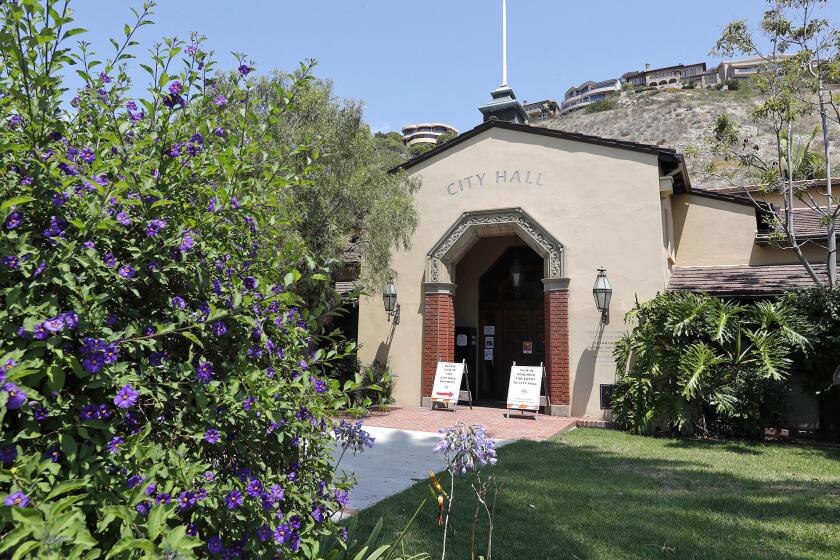Fishing ban lifted on O.C. coastline two months after Huntington Beach oil spill
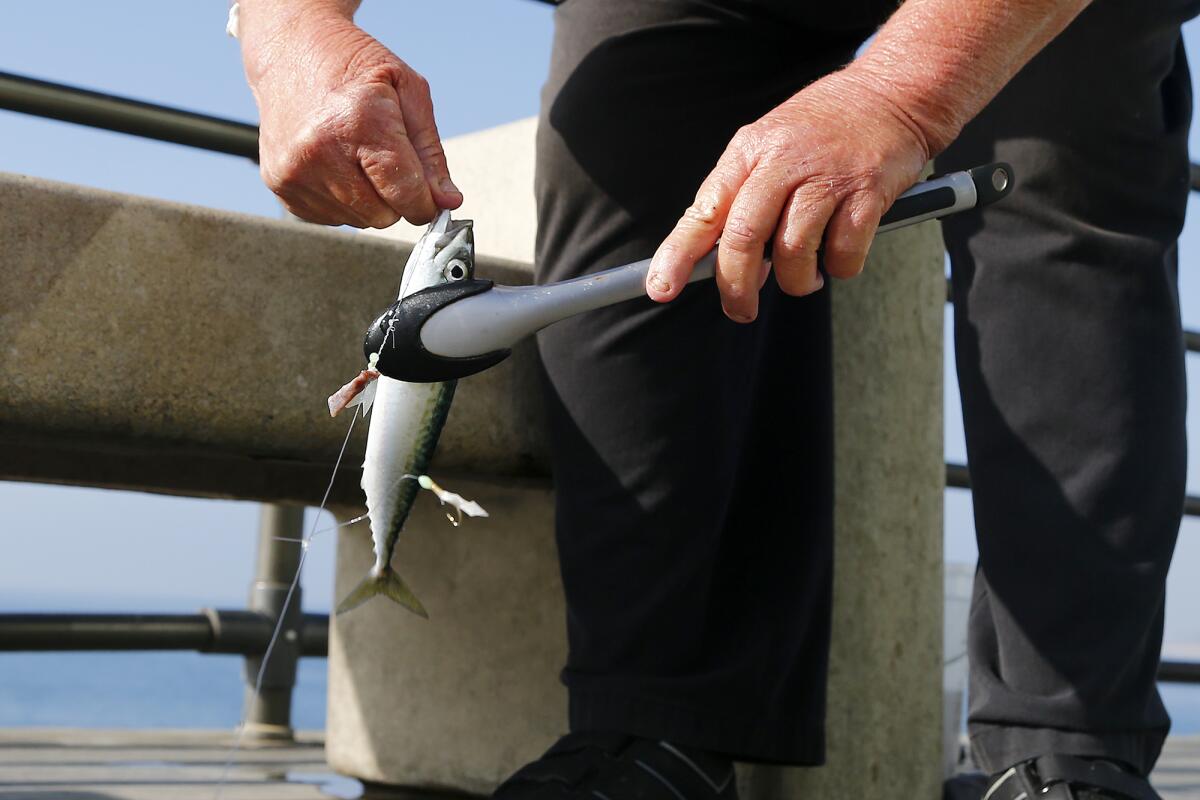
- Share via
Nearly two months after the closure of Orange County’s coast in the aftermath of the estimated 25,000-gallon oil spill off of Huntington Beach, the California Department of Fish and Wildlife made an announcement Monday — let them fish.
The order was lifted Tuesday afternoon to the relief of business owners impacted by the closure of the fisheries in addition to local politicians, including state Sen. Dave Min (D-Irvine) and Orange County Supervisor Katrina Foley.
“I am relieved to see that our fisheries will finally be able to reopen,” Foley said in a statement. “This oil spill immediately put a halt to the operations of many small businesses in our community whose livelihoods depend on the ability to fish off our Southern California coast. The business owners I have had the privilege to hear from in the last few months are resilient and my hope is that overcoming this final hurdle will finally help them get back on their feet.”
The order was initially implemented in October, prohibiting the taking of all fish and shellfish from Huntington Beach to Dana Point.
That closure was later extended to an estimated 650 square miles of marine waters and about 45 miles of shoreline, according to the state agency. Boundaries included all bays and harbors from Seal Beach to San Onofre State Beach in San Diego County.
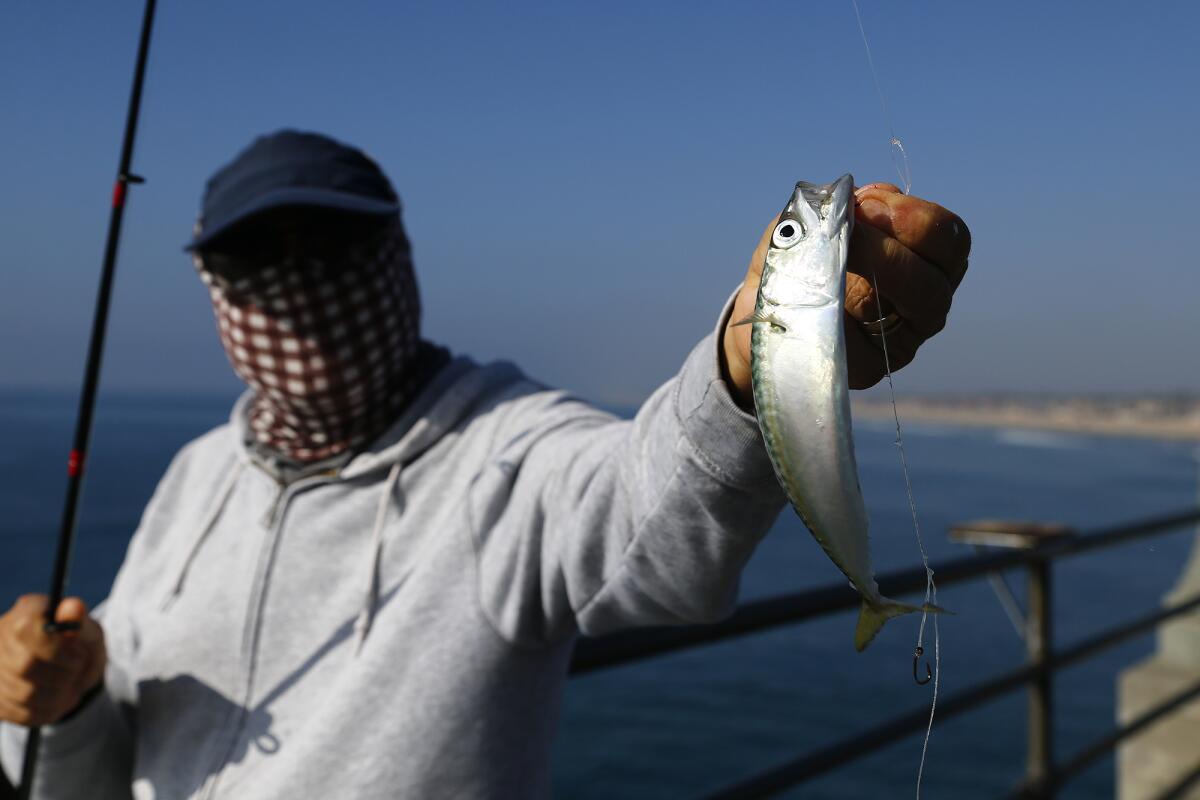
That meant while the Office of Environmental Health Hazard Assessment was testing seafood in the area, a business like Newport Landing and Davey’s Locker Sportfishing & Whale Watching had to pass up good fishing in nearby spots to keep fishers safe and follow state guidelines.
Authorities announced Monday there was no further risk to public health from consumption of seafood in the affected area.
Education manager Jessica Roame said the business saw the greatest impact in the first five days following the oil spill, which included the temporary closure of Newport Harbor.
Once the closures lifted, the company was able to resume its whale-watching tours, but its sportfishing tours had to stay on hold for at least three weeks before operators could figure out a way to take people out farther beyond the impacted region.
“Fishing is so nice on the coast of Orange County, but the whole of that area was blocked off. Thankfully, our crew and captains were ... able to strategize a Plan B, but they had been telling me that [they] were driving past really good fishing areas and having to tell customers that [they] couldn’t anchor up there,” Roame said.
“We can’t fish there, but we’re seeing all these fish here,” Roame said. “We have to go 15 miles this way. It’s been a big pain, but thankfully that’s over now.”
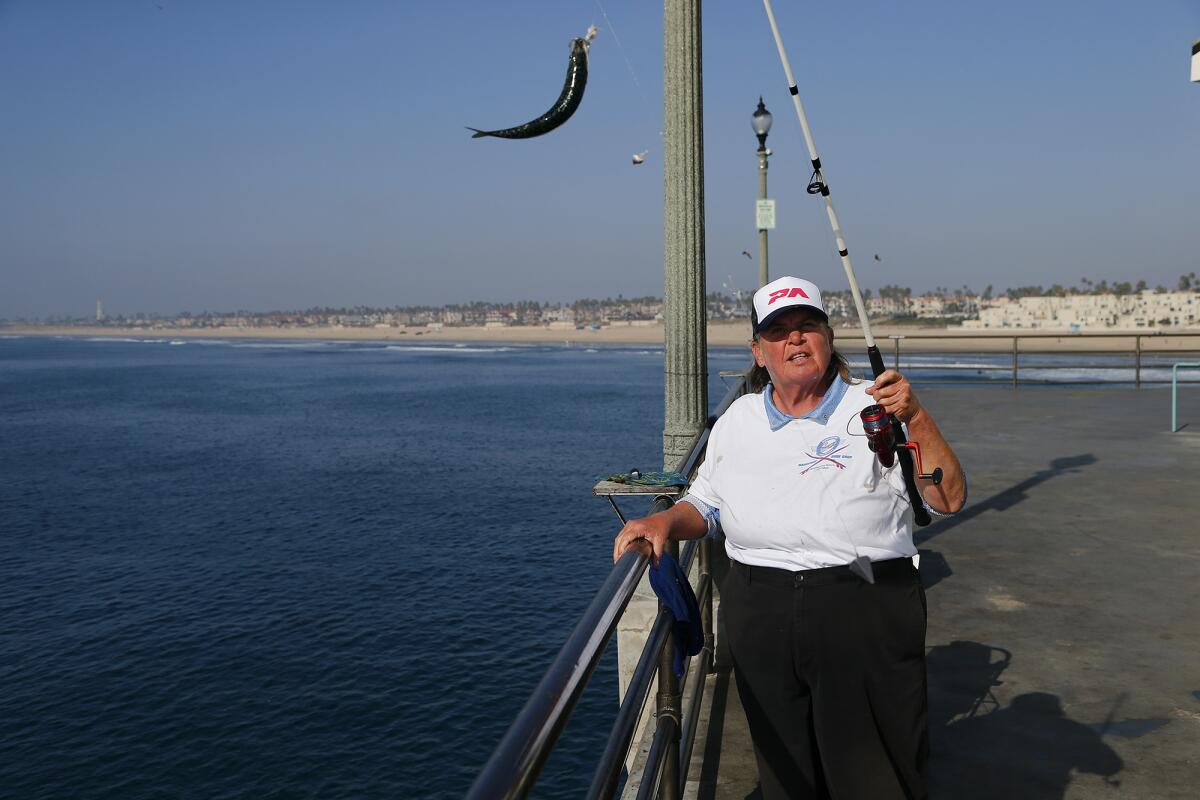
Pipeline operator Amplify Energy is currently facing a number of lawsuits — including two from a bait and tackle store in Costa Mesa and a Newport Harbor fuel dock — that allege the company acted negligently for failing to maintain its aging infrastructure and that the businesses themselves faced financial losses as a result of it.
But Roame said that at least for Newport Landing and Davey’s Locker, the biggest impact has not necessarily been the closures but public perception.
She said she didn’t want to understate the environmental impacts of the spill, which has killed a number of birds, sea lions and a bottlenose dolphin, according to the Oiled Wildlife Care Network at UC Davis. Officials said Tuesday that the Unified Command, responsible for coastline cleanup, has signed off on 69 shoreline segments out of a total of 107 — about 190 miles of coast.
But beaches, in addition to Newport Harbor, reopened about a week after the oil spill, which meant business for much of the harbor could return to some normalcy. However, Roame said she canceled trips early on due to the circumstances and fielded a number of cancellations and calls from people concerned about their potential impacts on the waters.
She’s gotten fewer calls these days, but business is slower compared to this same period last year.
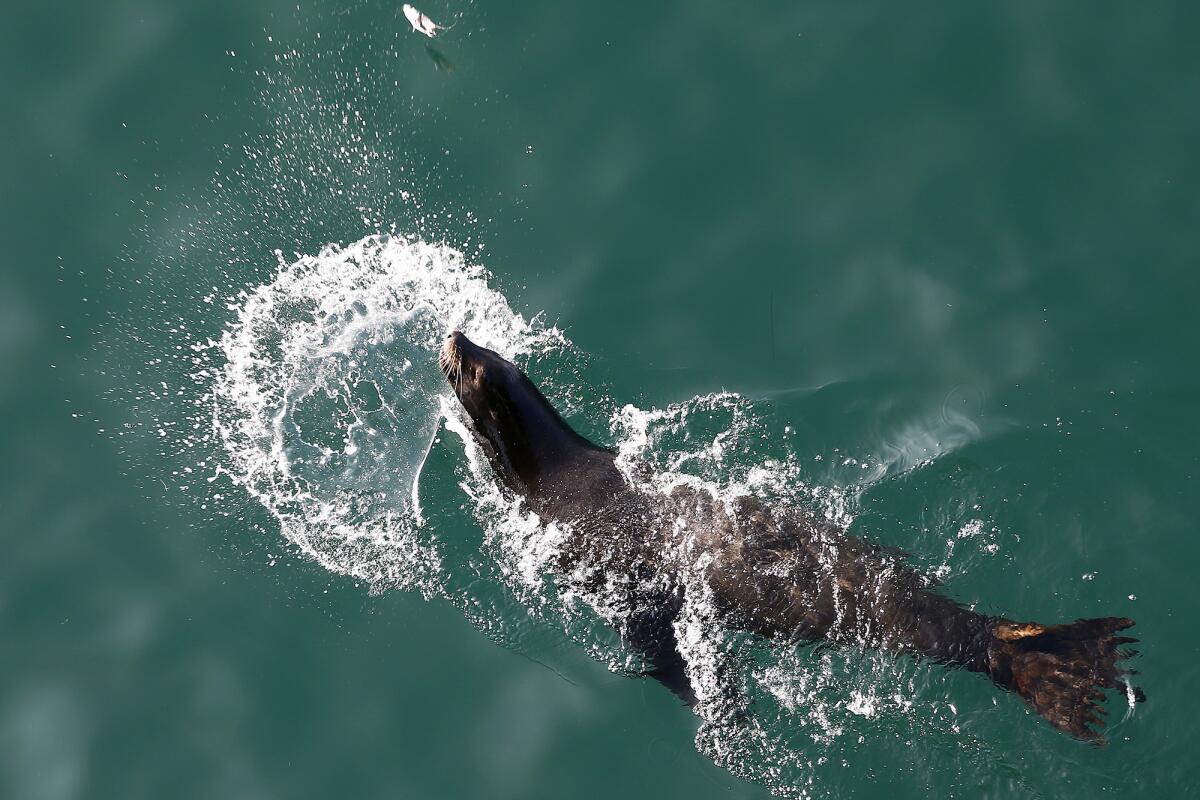
“We’re very excited and we’re happy to hear there’s no risk to public health to seafood consumption,” Roame said.
“We were very hopeful that was going to be the case. We’re back to business as usual, moving back to the holiday season ... COVID was the first issue, then the oil spill. It’s one hit after another. It’s really hard for local businesses to bounce back after really traumatic events like that,” she added.
“We’re hoping with the fisheries opening back up that people will get back out, get back on the water and do more of our fishing in the local area.”
All the latest on Orange County from Orange County.
Get our free TimesOC newsletter.
You may occasionally receive promotional content from the Daily Pilot.

